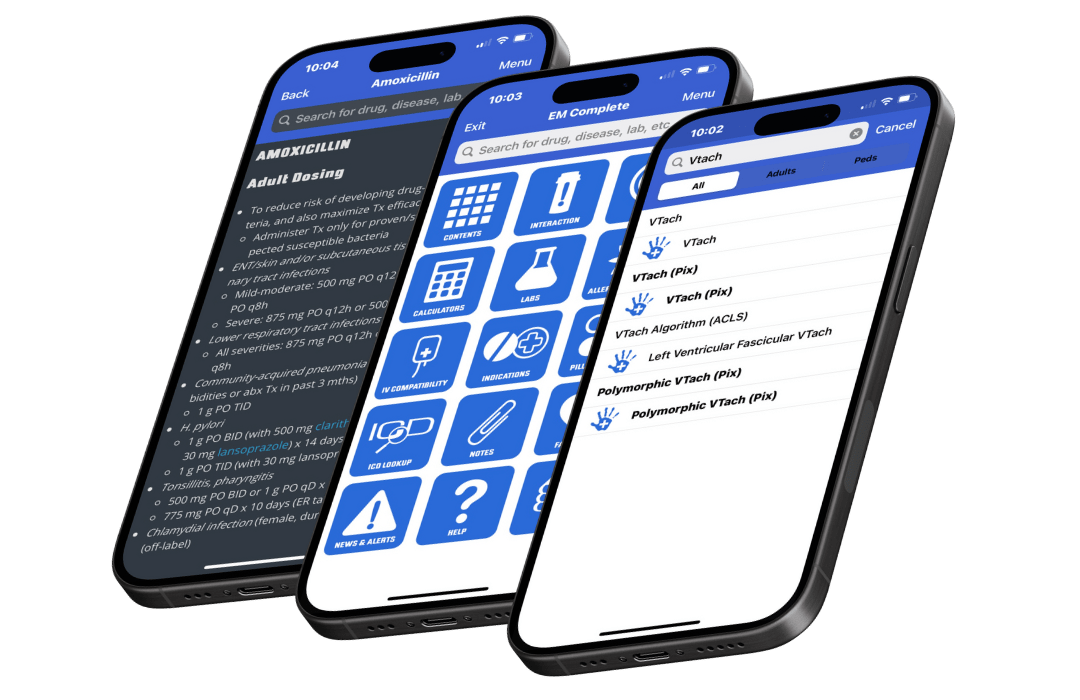DATA INTEGRATION
The PEPID Knowledgebase contains the largest drug database on the market, alongside extensive clinical content and clinical modules.
Designed for context sensitivity, the modular architecture of the PKB offers extremely granular and customizable returns to deliver only the information that is relevant to the user, and only at the points in the care process where it is desired.
Drug Database Contents
Our drug data is the most extensive on the market today and includes:
40,000+ Medications
100,000+ Drug Products
13,000+ Drug Names (Trade Names and Generics)
900+ Nutraceuticals
8,500+ Drug Monographs
Dosing Form
Strength
Unit of Measure
Administration Route
Pack Size
Manufacturer
Instructions
Indications & Uses
Contraindications
Cautions
Adult Dosing
Adult Daily Max Dose
Adult Daily Max Dose Strength
Pediatric Dosing
Pediatric Daily Max Dose
Pediatric Daily Max Dose Strength
Overdose Management
Ingredients
Mechanisms of Action
Adverse Drug Reactions
Drug Interaction Severity
Pharmacological Categories
Interaction Monographs
Duplicate Therapy Classes
Allergy Agents
Allergy Classes Agents
Allergy Cross Reference
Pharmacy Drugs Master
Drug Form Details
Kinetics/Dynamics
Pregnancy/Lactation
Trades and Cost Information
Patient Education Handouts
Evidence-based Inquiries
Nursing Considerations
CLINICAL CONTENT
Disease profiles and clinical conditions
Specialized content for each department
Symptom checker
Medical calculators
Emergency protocols and algorithms
Evidence-based practice recommendations
Illustrations for patient education
Diagnostic tests
and so much more…
Integration-Ready Solutions
The PEPID Knowledge Base provides all healthcare information systems — EMR, EHR, EDIS, HIS, HIE, ePrescribe and more — with the medical and drug data and SDK necessary to integrate medical and drug data in a way that best meets a clinician’s needs for maximum functionality and usability.
PEPID offers an unmatched selection of clinical decision-support modules available for integration. From disease profiles to pill pictures to our Drug-Allergy Checker, every health information system can benefit from PEPID’s customized solutions.
Drug Information & Database
The most extensive drug information database on the market today, PEPID contains U.S., Canadian, and International drug names, including all the drugs in the AHFS, generics, over-the-counters, herbals and foods. Ranked No. 1 in an independent Georgetown University study, our authoritative drug data is continuously updated and reviewed by the American Society of Health-System Pharmacists (ASHP). [Learn More]
Clinical Decision Support
The PEPID Knowledge Base contains the full spectrum of clinical decision support for every member of the care team. From initial consultation to assessments, diagnosis, treatment and follow-up care, PEPID provides the most authoritative and extensive electronic reference information available. Learn More about specialized data sets for providers in:
Medical and Dosing Calculators
Prevent medication errors related to improper dosing. Covering more than 3,000 weight-based and IV drip-rate dosing calculators, PEPID’s dosing calculators are drug-specific to promote medication safety. Learn More
Evidence-Based Medicine
Employ best-practice methods by referencing evidenced-based content inquiries from the Best Evidence in Emergency Medicine, the Family Physician Inquiries Network and the Oncology Nursing Society. Learn More
Medical Images and Illustrations
Our illustration and image database provides healthcare professionals with a visual reference for diagnosing or procedures, featuring thousands of images available and integrated into relevant content data sets. Learn More
Drug-Drug Interaction Alerts
Check for possible interactions between a patient’s entire medication regime, including prescriptions, over-the-counters, herbals, supplements and foods. The most powerful drug interaction checker available, PEPID provides a ranked listing of all possible interactions and a description of each reaction. [Learn More]
Drug-Allergy Alerts
IV Compatibility Tool
Check compatibility between IV drugs in Y-site, syringe or as an additive to minimize adverse drug events and maximize IV management and preparation. Learn More
Differential Diagnosis Generator
Pinpoint the causes of patient symptoms for better-informed diagnoses with PEPID’s DDX. Learn More
Patient Education Handouts
Our easy-to-understand patient education handouts are a great way for physicians to improve communication with patients. The information is concise and summarizes the most important information in regards to the prescription, rather than package inserts that are lengthy and difficult for non-clinicians to understand. Learn More
Pill Pictures
A picture is worth a thousand words and speaks volumes in identifying medications. Healthcare professionals can easily identify patient medications and reduce medication errors with the help of PEPID’s high-quality, comprehensive medication images.
Knowledgebase At A Glance
Supported Nomenclatures
| ICD-10 | C-DIN | SFDA |
| SNOMED | CPT | UMLS |
| RxNorm | ATC | |
| NDC | LOINC |
Data Expression
| XML | SQL | ASCII |
| HTML | JSON | Flatfile |
Complies with HL7® Standards
| FHIR® | InfoButton | C-CDA® |
Development Toolbox
| SDK | Services | TLS |
| API | Restful | SSL |
| Web | SOAP | AJAX |
Integration
| EHR | Portal |
| EMR | HIE |
| EPR | SLA 99.9% |
| Uptime | PHR |
| HIE | EDIS Patient |
| PBM | Ambulatory |
Big Data Meets
Big Decisions
At PEPID we have CDS for your integration needs — no matter how big or small.
The PEPID Knowledge Base provides all healthcare information systems – EMR, EHR, EDIS, HIS, HIE, ePrescribe and more – with the medical and drug data, and SDK necessary to integrate medical and drug data in a way that best meets clinician’s needs for maximum functionality and usability.








